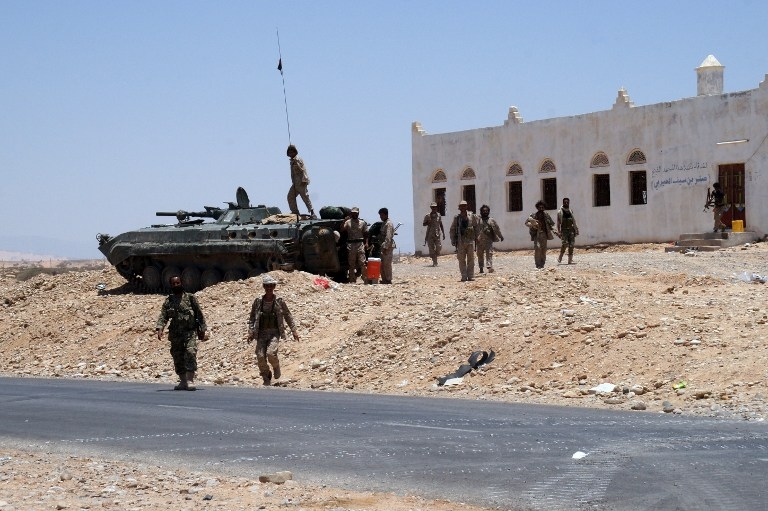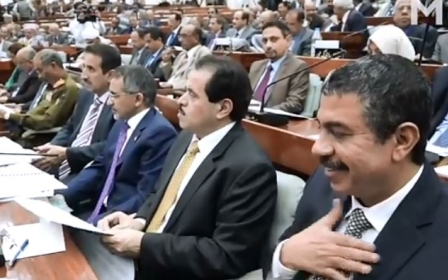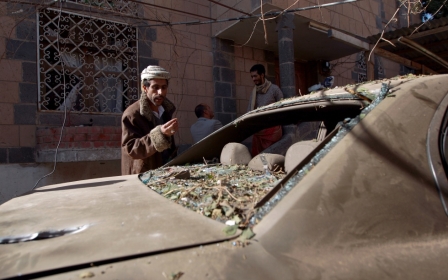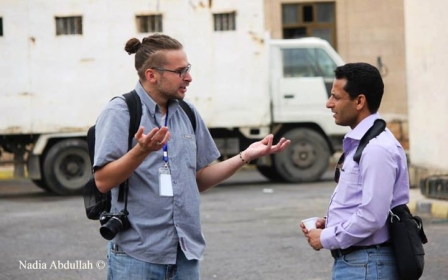US-Yemen raid killed civilians: tribesmen

At least eight unarmed civilians were killed in a US-Yemeni raid to rescue an American hostage on Saturday that also left him and a kidnapped South African dead, a tribal chief told MEE on Monday.
US and Yemeni officials said two hostages – 33-year-old American Luke Somers and 57-year-old South African teacher Pierre Korkie early Saturday – were killed after U.S. special operations forces, who landed in helicopters near the village of Dafaar in southern Yemen on Saturday, engaged in a gunfight with al-Qaeda militants who were holding the foreigners.
US defense officials also told Reuters that no Yemenis were involved in the raid. The Pentagon said it was unaware of any civilian casualties.
But testimonies from local tribal leader and one eyewitness to the failed hostage rescue bid have called those claims into question.
Tarek al-Daghari, the head of the influential Al-Awlaki tribe in Shabwa province, told MEE on Tuesday that seven civilians had been shot dead by the Yemeni and American soldiers as they descended on the compound where Somers and Korkie were being held.
“Some of the villagers were awakened by the explosions, they looked out of their windows and the Americans shot them dead. They [the American and Yemeni soldiers] shot anyone who was close to the house that the hostages were in and raided at least four homes,” Daghari added.
Daghari said the raid targeted three houses owned by three brothers, one of whom was a member of al-Qaeda. The home of their 70-year-old father located about 150 yards away was also targeted.
“This is a very small village, if someone sounded a horn or a dog barked, people would wake up. Just imagine what happened when a helicopter landed,” said Daghari.
Daghari said his tribe would press for compensation from the Yemeni government over Saturday’s raid. He said the government should form a commission to investigate as there was “evidence Yemeni soldiers were involved” in the operation at a remote village in the southeastern province.
“We call on the government in Sana’a to consider the case of seven civilians killed and that of a woman and child who were wounded for reparations,” Daghari told AFP.
Another leading member of the tribe, Abu Bakr Saleh al-Dahgari, who witnessed the raid said he had been unware that the hostages had been taken to a home in the village.
“We are not supportive of terrorism, if we had known about the hostages, we would have tried to mediate between the two sides and negotiate with the government for their safe return. What happened is a barbaric and random attack on our homes,” he said.
Abu Bakr described the incident as a full-blown air and ground operation, with both American and Yemeni soldiers surrounding the village from all corners and firing at the village homes.
According to Abu Bakr, the al-Qaeda member who had taken the hostages into the village was 24-year-old Sheikh Mubarak al-Daghari. Six of his family members, including Ahmad, Jamal, Rawis, Saleh, Fahd and Nasser, were killed in the attack.
The Sana’a government said that 10 suspected al-Qaeda militants were killed and four members of Yemen’s security forces were wounded during the failed rescue operation.
The Yemeni forces accompanied US commandos in the raid, which came two days after Somers’s kidnappers had issued a video in which they threatened to kill him within 72 hours.
Korkie, who was abducted in May 2013 in Yemen’s second city of Taiz, was killed the day before he was expected to be released by his al-Qaeda captors.
New MEE newsletter: Jerusalem Dispatch
Sign up to get the latest insights and analysis on Israel-Palestine, alongside Turkey Unpacked and other MEE newsletters
Middle East Eye delivers independent and unrivalled coverage and analysis of the Middle East, North Africa and beyond. To learn more about republishing this content and the associated fees, please fill out this form. More about MEE can be found here.




